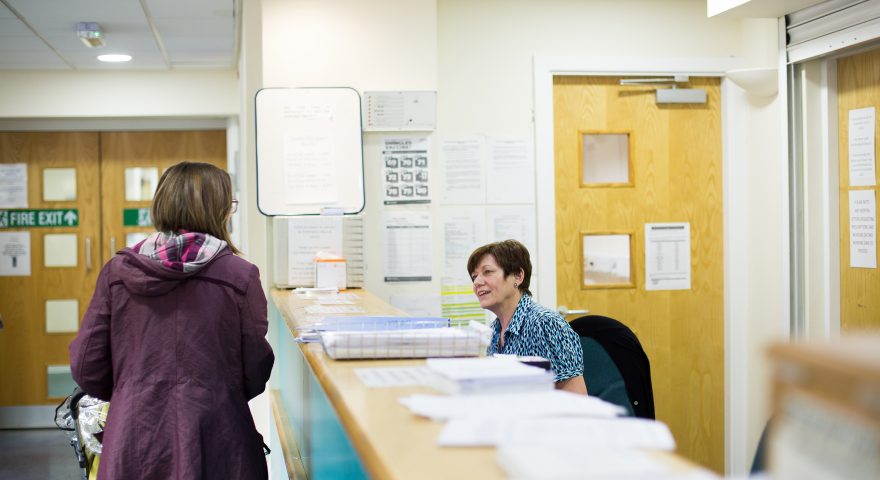Patients at Salford’s GP surgeries will benefit from improved advice and support from their practice’s reception teams.
Starting in the autumn, ‘Care Navigation’ is a new way of helping people who contact their practice for an appointment. Specially trained members of the reception team will work with the patient to guide them to the most appropriate form of help. Sometimes the GP might not be the best person to see and people could be seen and treated quicker or more appropriately by a nurse, mental health practitioner, pharmacist or other health professional.
Dr Neil Turton, Salford Primary Care Together’s Chief Executive, said: “The GP will still be there to see people who have a serious or long term medical need. However, demand for GP services is increasing so we have to find new ways of making sure people can still get the health and wellbeing support they need without having to wait a long time.
“There are a range of different health professionals within the practice itself and also further afield in the community, so Care Navigation aims to ensure the patient is aware of their options of who else they can see for a quicker response to their needs.”
Further information about Care Navigation
Does this mean that a person will not be able to see a GP when they need to?
No, if the patient does not wish to answer further questions about their needs or their reason for requesting an appointment to see a GP and don’t wish to explore other professionals; the navigator will facilitate this.
Care Navigation encourages a patient to speak to someone other than their GP about their needs – how is their patient confidentiality protected?
All NHS staff are bound by duty to protect a patient’s confidentiality (and a breach of this is a disciplinary offence) and so each conversation with a patient will be handled with due attention to confidentiality. Care Navigators may need to access a patient’s record to make a note of what advice or signposting has been given to the patient. Practices are also encouraged to handle conversations with patients sensitively by ensuring they take place, where possible, in a private space.
Are Care Navigators trained?
Care Navigators will shortly be embarking on their training, which includes, amongst other support, an online training package. Aside from training, practice managers and lead administration team members have been involved in workshops to understand more about the programme and also to decide which care pathways Care Navigation should focus on to begin with. Further workshops will take place in September and October prior to the go-live of Care Navigation. The development of a core set of skills and competencies for Care Navigators will be a continuous programme.
Will the public be aware that this is happening?
We will be working with GP practices to ensure this new way of working is promoted, for example, welcome messages on phone lines, posters and leaflets in practices. Other methods will include social media and we also plan to carry out some face-to-face sessions with patients.
Is this ‘triage’ or ‘navigation’?
This is not triage and the Care Navigator will not be making any clinical decisions. The conversation will typically involve some short, brief questions that explore other things that the person may find helpful to support them around well-being and lifestyle. The patient will always have the choice to see the GP.
What about patients who book appointments online?
Presently Care Navigation will only be applied face to face or over the telephone. West Wakefield have been approached by NHS England to work with them to enable an online solution. This is under development presently and will be trialed in areas where Care Navigation has been live for longer.
